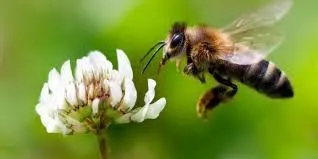Oh, the irony that the food we need to nourish our bodies relies on creatures we can't communicate with, that measure half an inch long and have a life span of only six to eight weeks, at most.
Home gardeners understand all too well the importance of bees to a plentiful, nutritious bounty of fruits and veggies. Most likely, those gardeners also know there is a national decline in the health of honeybees which creates grave concerns about our national food supply. Beekeepers see it first and as they tend their hives and farmers are well aware of the honeybee decline too! Currently, even the general public is aware of our diminishing honeybee population.
But there is much discussion about what is actually causing the decline and, as life often goes, the answer is complicated.
A recent article in the 2020 Winter Issues of Mother Earth News by Dr. Jonathan Lundgren, a former research scientist

The study results prompted Dr. Lundgren to look deeper and wrote “…the public knows the bees are dying but much of the momentum behind saving them has been lost. We're losing more hives than ever and beekeeping as an industry will likely be dead soon if something doesn't change.”
His research on the use of neonicotinoid seed treatment (a then-new class of insecticide chemical related to nicotine used widely on farms and in urban landscapes) didn't control pests but were reducing the predators that might eat pests and diminish pollinators.
It was beekeepers that proved pesticides caused hive losses. After years of his own research, he determined many pesticides don't kill bees but instead affect genetics and hormones. He suggests, “pesticides can give bees learning disabilities and autoimmune diseases that affect reproductive capabilities that can't even be measured… and their impact may not be fully realized for generations.”
He also takes into consideration that a risk assessment of pesticides is constrained by the tools that aren't available for measuring the impacts of some chemicals in our environment. Diminishing federal and state funding results in scientists' need to rely on industry money for studies that strongly influence the type of study conducted.
Dr. Lundgren also conducted research on monoculture-based crop rotations which reduces the plant diversity honeybees need to survive and thrive. This monoculture farming requires more pesticides and fertilizers be applied to keep degraded farmland productive and these “agrichemicals” kill bees. Starving and bees exposed to chemicals have less resistance to parasites, he wrote.
The solution to the decline of bees, he asserts, is to reform agriculture. Regenerative agriculture is the answer not only to the plight of honeybees, but better farming practices and is starting to take hold in the farming community. Regenerative agriculture “improves soil health and promotes biodiversity (microbes, insects, plants, fungi, animals, etc.) while profitably growing food, according to Dr. Lundgren.
Healthy soil and biodiversity can improve bee health. Farmers can quickly restore the physical, chemical, and biological health of the soil. Practices such as no-till or reduced tillage, crop diversity, livestock-crop integration can improve soil health without chemicals.
Plant diversity around farms is essential to making and keeping bees healthy. The pollen and nectar of different plants contain the micronutrients and microbial communities that honeybees need to survive and thrive.
According to Dr. Lundgren, “Finding solutions that are natural and inexpensive will be important to stemming hive losses until we can right the ship of food production toward ecologically intensive systems.”

